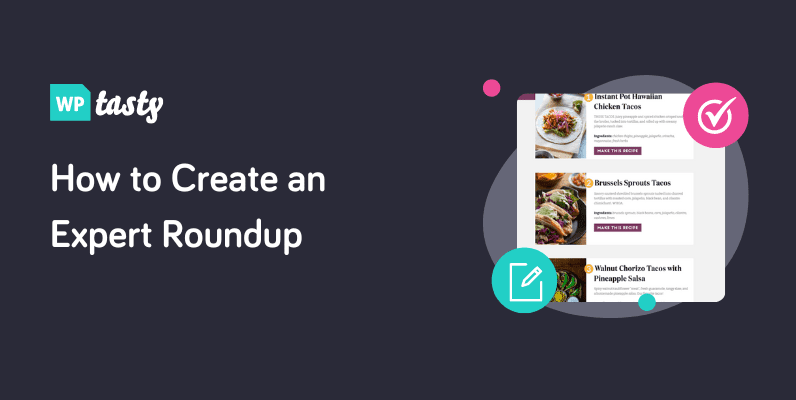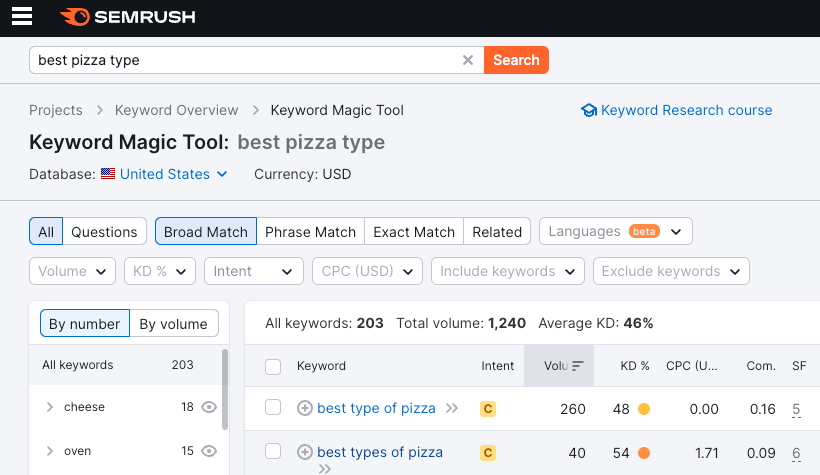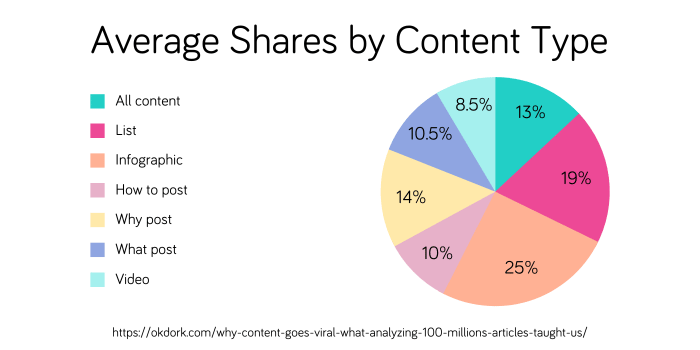The expert roundup isn't dead.
In fact, it's still a key piece of content marketing. So taking the time to create high-quality expert roundup posts is worth it. And that's because you help people find their answers and search engines find your post.
But…we imagine that's why you're here.
This guide shows you how to create expert roundup posts to drive shares and people to your website.
So, let's dive in.

What is an expert roundup?
An expert roundup is an article where the author posts a bunch of experts' insights on a topic.
For example, let's imagine you're creating an expert roundup on the best ways to make pizza. So, you ask a group of pizza chefs, food critics, and pizza lovers to share their opinion.
Then, you publish a blog post where you write about the topic and what the experts were sharing. Direct quotes, common themes, and any key advice help readers. And when readers see all these experts in one post, it boosts your post's performance!
How, you ask? ?
Why would you use expert roundups?
The great thing about expert roundups is there isn't only one benefit!
Expert roundups benefit your website in a few ways:
- Credibility ?. You know all these experts, so you must be someone in the industry as well! 10 points to your credibility score!
- Social media ?. You have a list of experts sharing your post on social media because you mentioned them. That means more eyes on your post ?!
- Backlinks ?. If you're mentioning and linking to experts, they may link back to you, too! And link building is a key part of growing your website's authority.
So, if you're ready to boost your website, let's get into the details!
How to create an expert roundup
Step 1: Do keyword research for a topic
Search Engine Optimization (SEO) should already be in your digital marketing strategy.
And a critical part of SEO is keyword research. If you don't nail your research, your entire article is off-track.
So, take the time to find specific questions people are asking in your niche. There are a few ways to do this:
- Follow influencers and bloggers in your niche and see what questions they answer.
- Check out forums, Quora, and Reddit to dive even deeper to see what your audience is talking about.
Then, use tools like Ahrefs and Semrush to get a better idea of how much traffic potential is out there.

As you filter through options, find something conversation-worthy. After all, your experts are answering questions to lend their expertise. It's important to use this time well.
And topics that generate conversation are perfect targets.
Step 2: Find experts and get their opinions
We hope you enjoy researching.
Because it's time for round 2: finding the experts in your niche. If you don't already have a list in mind, some great places to start are:
- Social media (Twitter, Facebook, Instagram, LinkedIn, etc.)
- Google search
- Other expert roundup posts
As you find your choices, make sure you write down how to get in touch with them. Email addresses, social media handles, or phone numbers are all great choices if you can find them.
Then, it's time to reach out.
If you can, try to start a natural relationship with them. Interact with posts, contribute to their site, or meet them at a conference. Whatever you choose, it's better to “get your foot in the door” in a natural way.
If this isn't possible, keep things simple.
The expert is likely busy, so don't waste their time. Highlight who you are and what you're doing. Then follow up with how you appreciate the content they've created. If you're a fan (and you should be), it's great to reference something they created that helped you.
Last, get to your question and ask for a brief response.
Mention you'll link to them and share it on social so they can re-share it themselves!
Step 3: Decide the type of content to create
One mistake people make is limiting expert roundups to blog posts.
In fact, expert rounds can be much more than a blog post:
- Video
- Podcast
- Social media
- Infographics and visuals

Take the time to figure out the best type for your topic. You may find during research that many types work well for the topic. So, create more than one!
We're talking about repurposing content.
This means you create a content piece for one media type. Then, use it and reformat it for other media types to share on YouTube, Twitter, podcasts, and more.
It spreads out your sources of traffic and reaches a bigger audience.
Talk about a win-win!
Step 4: Create your expert roundup
Alright, you're done researching
Now it's time to roll up your sleeves and spend a long day over the keyboard. But you have your expert responses, all you need to do is organize it into a great piece of content!
If you're unsure where to start, look at what others have done. Is there a format they follow that you like? Did they provide everyone's opinion or a few? Is there a theme to follow?
Looking at what others have done helps you understand what works. And that's a headstart for you.
Then you have to create the best piece of content for the topic.
If you're publishing a roundup on WordPress, Tasty Roundups makes this process easy.

You add a WordPress block, upload a photo, and fill in the title and description. Then repeat. Using Tasty Roundups, you get a uniform look for all your roundup posts so your website looks clean.
So, now that your roundup is ready, it's time for publishing!
Step 5: Publish and share it
Now it's time to show your beautiful expert roundup to the world!
Get it published on your website, blog, channel, or other medium. But the work doesn't stop there.
In fact, some of the hardest work is ahead. Now you must head to social media to spread the word about your amazing roundup. Twitter, Facebook, LinkedIn, and [insert other social media here]! You spent all this time creating it, why would you let it sit and rot away?
But don't stop at one tweet and then stop. That's not content marketing at its finest.
Instead, create an entire campaign around it. Find ways to share the content, then schedule posts for the future.
Are there specific quotes that stand out to share on Instagram? Can you slim the roundup down to a Twitter thread? Is there an infographic you can make to use in future posts?
All these methods help keep your post alive for the long haul.
Ready to get started?
And that's all there is to it!
Feel ready to get started on your own expert roundup post? If so, head to Tasty Roundups pricing page and get to work! You'll be amazed how much faster you publish roundups with it!
If you're looking for more ways to improve your site's speed and visibility, check out the best WordPress cache plugins.
![How to Create an Expert Roundup [Only 5 Steps!]](static/picture/How-to-Create-an-Expert-Roundup-Only-5-Steps.png)